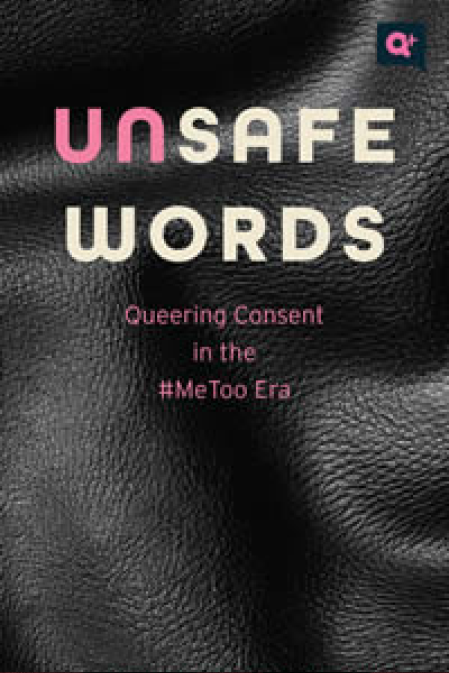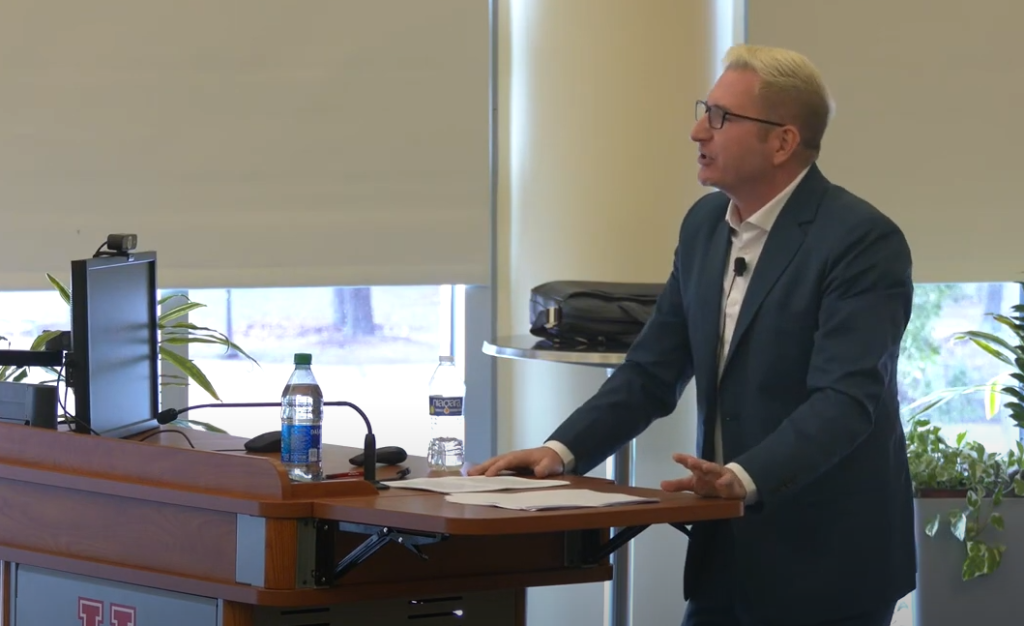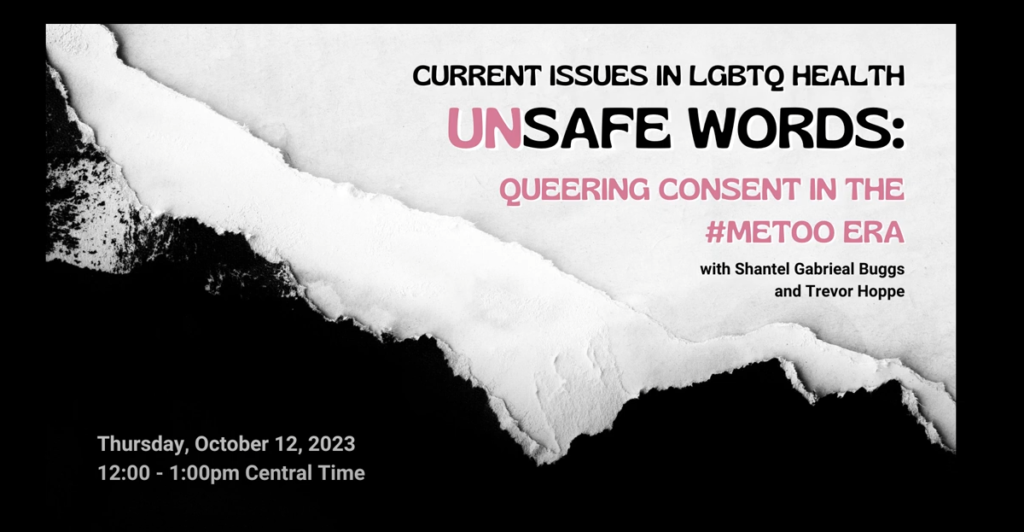Sociologist of sexuality,
medicine & the law.
Co-editor of Unsafe Words and the War On Sex. Author of Punishing Disease.

Current Research

Welcome! I am currently Associate Professor of Sociology at The University of North Carolina at Greensboro. I came to UNCG from University at Albany and, prior to that, a postdoctoral fellowship in the Criminology, Law and Society Department at the University of California at Irvine. My research examines the social control of disease and sexuality.
I have published three books. The first, “The War On Sex,” is a collection of essays co-edited with David Halperin analyzing the criminalization of sex. The second, “Punishing Disease,” is a monograph explaining the rise of punitive responses to HIV and other infectious diseases. In 2018, “Punishing Disease” was awarded the Lambda Literary Award for LGBTQ Studies. The third book, “Unsafe Words,” is a collection of essays co-edited with Shantel Gabrieal Buggs on sex, consent, and harm from a queer perspective.

Unsafe Words
Queer people may not have invented sex, but queers have long been pioneers in imagining new ways to have it. Yet their voices have been largely absent from the #MeToo conversation. Unsafe Words tells their side of the story.

Punishing Disease
From the very beginning of the epidemic, AIDS was linked to punishment. Calls to punish people living with HIV – mostly stigmatized minorities – began before doctors could even name the disease. Punishing Disease explores how and why this disease was reframed as a crime.

The War on Sex
The past fifty years are conventionally understood to have witnessed an uninterrupted expansion of sexual rights and liberties in the United States. The War on Sex complicates that story.
Media

Professor Hoppe Gives Keynote Lecture on Consent
Trevor Hoppe gave the annual “Sociology in Action” lecture at University of Houston. Watch video

Interview with Professor Hoppe on PrEP
As part of a series published around World AIDS Day, Trevor Hoppe was interviewed about the impact of PrEP on HIV and sexuality for North Carolina’s LGBTQ newspaper, QNotes Carolinas. Read story

Unsafe Words Event in Chicago
Trevor Hoppe and Unsafe Words co-editor Shantel Gabrieal Buggs speak at Northwestern University’s Institute for Sexual and Gender Minority Health (ISGMH) about consent, queer sex, and sexual health research. Watch video
FEBRUARY 2023
In this interview with Queerful and my co-editor Shantel Gabreial Buggs, we discuss our new book Unsafe Words and how LGBTQ communities navigate ethical sex, consent ,and harm.
FEBRUARY 2023
FEBRUARY 2023
In this interview with Queerful and my co-editor Shantel Gabreial Buggs, we discuss our new book Unsafe Words and how LGBTQ communities navigate ethical sex, consent ,and harm.
PRAISE
We need Unsafe Words: Queering Consent in the #MeToo Era now more than ever. A vital cultural reckoning with sexual assault and harassment brought issues of consent to the forefront – but often oversimplified them. We now need a more nuanced discussion of how consent may be understood and enacted. This groundbreaking collection brings together voices that explore and expand how concepts as such as power, assent, identity, autonomy, and community function in many people’s lives. It is imperative reading for everyone – policymakers, scholars, sexual liberationists – who grapples with these questions.PRAISE
With this dazzling collection of meditations and provocations from leading scholars in the field of sexuality studies, Unsafe Words offers something we desperately need: a place to ask the queer questions about consent that dare not speak their names. Can consent be queered? What happens when queer and feminist sexual politics clash over questions of consent? How does the prevailing consent paradigm perpetuate the harms of the criminal legal system and thwart more just possibilities for redress? This is a must-read for both activists and scholars of sexual ethics alike.PRAISE
What happens when a nation seduced by carceral solutions confronts a dreaded disease linked to sex and drugs? Trevor Hoppe’s thorough and well documented analysis explains how and why legislators, courts, public health officials, and police across the United States have “criminalized sickness” in the case of HIV/AIDS. "Punishing Disease" is a wake-up call about the dangers of punitive approaches to stopping the spread of disease.PRAISE
Sociologists have examined a plethora of human conditions that have been medicalized and treated as Illness. This well researched book examines a case that flips medicalization on its head: how HIV/AIDS, a devastating disease, became criminalized and with what consequences. Trevor Hoppe’s clear analysis sheds important new light on how the meanings of disease and illness have significant social, political and health consequences.PRAISE
Containing essays from some of the most insightful scholars and activists working on the front lines, "The War on Sex" is a vital tool for understanding how the regulation and criminalization of sex relate to our vital struggles in racial, economic, gender, and disability justice. Full of thoughtful, carefully researched essays, "The War on Sex" will support readers in classrooms and social movements to understand and strategize about the relationships among sex, criminalization, poverty, disability, and contemporary politics. We need this book right now.PRAISE
Recent events just keep confirming, all too dismally, that the issues this collection takes up—from sex offender registries and sex trafficking to HIV in public health—link together as a major front of struggle in our time, often far from public view. Questioning some of the narratives of progress that are so widely echoed in the media and popular consciousness, "The War on Sex" will immediately meet the needs of academics and activists alike.PRAISE
We are living through a little-discussed assault on sexual freedoms that is pioneering new, subtle, and insidious methods of social control: this is the disturbing and difficult-to-refute thesis of The War on Sex, a new collection of essays... Interdisciplinary in scope and inclusive of activist voices from outside the academy, the book is an essential introduction to a struggle for self-determination and sexual self-assertion that has been occurring behind mainstream social movements’ focus on dignity and respectability.Get In Touch
University Address
Trevor Hoppe
Department of Sociology
UNC-Greensboro
337 Frank Porter Graham Building
PO Box 26170
Greensboro, NC 27402-6170





